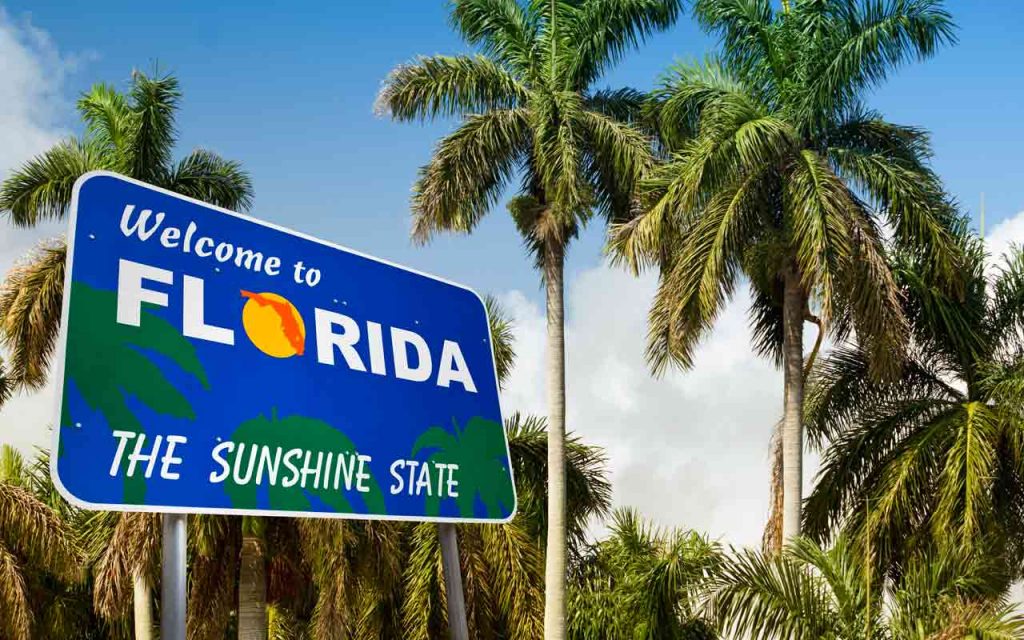Florida – The Sunshine State?
When I say Florida, what do you picture? Florida tends to conjure up breezy images of sea shell-laden sandy beaches, with palm trees asway as the sun beams gracefully down on strikingly blue water. Perhaps the mentioning of Florida is suggestive of big cities and their respective landmarks, such as Miami with its Hispanic vibrancy or Orlando with the presence of Disney World. I would like to re-introduce Florida to anyone whose default is one of the above. It is not that those notions are false representations, but Florida is simply more. I would like to express the diversity of Floridians and the Floridian landscape, for better or worse. I’d like to hijack the narrative stating that Florida is the perfect Sunshine State, a paragon for retirement communities, Spring-breakers, and sunburnt Scandinavians wearing floral prints. Florida is so much more than these tropes. Florida is vast. It is truly immense, geographically speaking. Florida is filled with an insane (read: deadly) ecosystem. Florida is diverse in ideologies. The state is essentially fractured and divided into differing cultural regions. You could even say that the state’s inhabitants are dramatically polarized. You can see from the map below that the blue regions voted for Hillary Clinton and the red regions voted for Donald Trump in the 2016 presidential election. This is similarly representative of greater cultural trends found across the state as well. The larger cities and the coastal areas are expressive of a ‘Northern mentality’ and the rural and central areas tend to represent a ‘Southern-like’ culture. Photo from New York Times Election Coverage In essence, North Florida is culturally aligned with the American deep south and South Florida is culturally aligned with that of New England, the Northeast US. North is South and South is North. This might sound confusing, and it is. Florida is confusing. It is chaotic and divergent to a fault. In West Palm Beach there might be a rally for women’s reproductive rights or a demonstration to end gun violence. At the same time, when driving north heading towards Orlando, you’ll see billboards advertising ‘gator jerky, pro-life messages, and the most loathsome, in my opinion, Machine Gun America – which depicts a smiling little girl in a pink tank-top holding up a big black machine gun. The idea that you can take the action of shooting a gun and turn it into a giant spectacle, a glorified family-friendly experience, a way to capitalize on someone’s twisted idea of fun – this, while grim, is so utterly Florida. While these diametrically opposed political and cultural views are not necessarily novel to Florida alone, Florida does offer the unique experience of a deadly tropical environment! Yes, you read that correctly. Growing up in South Florida, it isn’t uncommon to stumble upon an alligator sun-bathing in your backyard. Or a potentially poisonous snake. You actually grow up learning how to deal with these kinds of creatures. I remember learning in elementary school that if you are ever being chased by an alligator, you need to run away in a zig-zag motion, which confuses the animal as its eyes are placed on opposite sides of its head. This way, it won’t know which direction to run in and will become confused. There’s also the well-known phrase for when you see a coral snake, which has red, yellow and black stripes: Red touches black, friend of Jack. Red touches yellow, Jack’s a dead fellow. Catchy rhymes about deadly snakes and gun-glorifying spectacles aside, Florida is my home. It’s many people’s homes. I think this is important to remember when we, as global citizens, cross borders throughout our lives. Where are we going and why? What negative, positive, or neutral impact will I have on the local communities? What can I learn or understand from the nuances of local communities where I’m headed? The key notion here, in my opinion, is not to second-guess our every action but to make choices with informed intention. In doing so, we can open our eyes to more than common tropes. We can go beyond the preconceived notions of a place and begin to dig into what it is about spaces and places that make them special to the communities that inhabit them. By Maya Schwartz
Florida – The Sunshine State? Read More »




